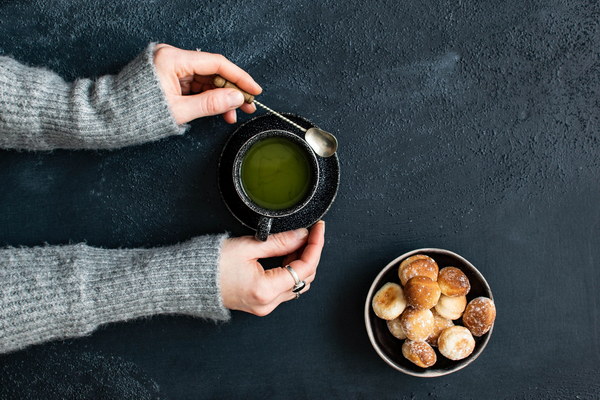Supplementing with Food vs. Sipping Tea A Comprehensive Comparison
In the world of wellness and health, there are numerous ways to boost our bodies and minds. Two popular methods are through the consumption of supplements and the enjoyment of tea. While both have their own unique benefits, it's important to understand the differences between these two approaches. In this article, we will delve into the distinctions between using food as a supplement and drinking tea, exploring their advantages and disadvantages to help you make an informed decision.

1. Definition and Purpose
Supplements are substances taken to enhance the body's function, often in the form of capsules, powders, or liquids. They are typically used to provide essential nutrients that may be lacking in one's diet, such as vitamins, minerals, and amino acids.
On the other hand, tea is a beverage made from the leaves of the Camellia sinensis plant. It has been consumed for centuries and is known for its health benefits, which range from improved digestion to reduced stress levels.
2. Nutrient Absorption
When it comes to nutrient absorption, food supplements have the advantage. Since supplements are designed to be easily absorbed by the body, they can provide a quick and effective way to increase the intake of essential nutrients.
In contrast, the absorption of nutrients from tea can vary depending on the type of tea and the individual's metabolism. While some teas, like green tea, contain high levels of antioxidants, the body may not absorb all of these nutrients in the same way it does from supplements.
3. Taste and Convenience
One of the primary benefits of tea is its pleasant taste and convenience. Tea can be easily prepared and enjoyed in various forms, such as hot, iced, or blended with other ingredients. This makes it a versatile and enjoyable way to incorporate health benefits into daily life.
In contrast, supplements often have an unappealing taste and may require additional steps to be taken, such as swallowing capsules or mixing powders into beverages. This can make it less appealing for some people.
4. Cost and Availability
The cost of supplements and tea can vary greatly. While some supplements can be expensive, tea is generally more affordable and widely available. This makes it a more accessible option for those on a budget or looking for a more cost-effective way to improve their health.
5. Side Effects and Interactions
Supplements may come with potential side effects and interactions with other medications or health conditions. It's important to consult with a healthcare professional before starting a new supplement regimen to ensure safety and effectiveness.
In contrast, tea is generally considered safe for most people when consumed in moderation. However, certain types of tea, such as green tea, may interact with medications or cause adverse reactions in individuals with specific health conditions.
6. Long-term Health Benefits
Both supplements and tea offer long-term health benefits. Supplements can help address nutrient deficiencies and support overall health, while tea can help reduce the risk of chronic diseases, such as heart disease and cancer.
Ultimately, the choice between using food as a supplement and drinking tea depends on individual needs, preferences, and goals. While supplements can provide a concentrated source of essential nutrients, tea offers a more enjoyable and versatile way to incorporate health benefits into daily life.
In conclusion, both supplements and tea have their own advantages and disadvantages. By understanding the differences between these two approaches, you can make an informed decision that aligns with your health goals and preferences. Whether you choose to supplement with food or sip on tea, remember that moderation and balance are key to a healthy lifestyle.









